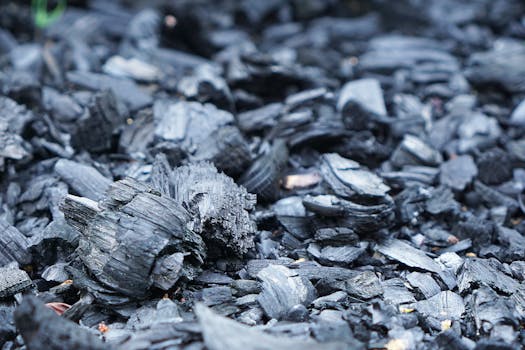Introduction to Biochar
Biochar, a carbon-rich material produced through the pyrolysis of organic matter, has gained significant attention in recent years for its potential to enhance soil health and support beneficial microorganisms. As the world grapples with climate change and soil degradation, biochar emerges as a sustainable solution that not only improves soil fertility but also fosters a thriving ecosystem of microorganisms essential for plant growth.
The Role of Beneficial Microorganisms in Soil Health
Soil is a complex ecosystem teeming with life, including bacteria, fungi, protozoa, and nematodes. These microorganisms play crucial roles in nutrient cycling, organic matter decomposition, and disease suppression. The health of soil is directly linked to the diversity and abundance of these beneficial microorganisms. Key functions include:
- Nutrient Cycling: Microorganisms break down organic matter, releasing essential nutrients like nitrogen, phosphorus, and potassium.
- Soil Structure Improvement: Fungi and bacteria help bind soil particles together, enhancing soil structure and aeration.
- Disease Suppression: Beneficial microbes can outcompete or inhibit pathogens, reducing the incidence of plant diseases.
How Biochar Supports Beneficial Microorganisms
Biochar serves as a habitat and food source for beneficial microorganisms, creating a conducive environment for their growth and activity. Here are several ways biochar supports these vital organisms:
- Increased Surface Area: The porous structure of biochar provides a large surface area for microbial colonization, allowing more microorganisms to thrive.
- Retention of Nutrients: Biochar can adsorb nutrients and water, making them more available to microorganisms and plants.
- pH Regulation: Biochar can help buffer soil pH, creating a more favorable environment for microbial activity.
- Carbon Source: As a stable form of carbon, biochar serves as a long-term food source for soil microbes, promoting their growth and activity.
Case Studies and Research Findings
Numerous studies have demonstrated the positive impact of biochar on soil microbial communities. For instance, a study published in the journal Soil Biology and Biochemistry found that the application of biochar increased microbial biomass and diversity in agricultural soils. The researchers noted:
- Microbial biomass increased by up to 50% in soils treated with biochar.
- Diversity indices showed a significant rise, indicating a healthier microbial community.
Another case study conducted in Brazil revealed that biochar application improved soil fertility and increased crop yields by 20-30%. The enhanced microbial activity was credited for the improved nutrient availability and disease resistance observed in the crops.
Practical Applications of Biochar in Agriculture
Farmers and land managers can leverage biochar to enhance soil health and support beneficial microorganisms. Here are some practical applications:
- Soil Amendment: Incorporating biochar into the soil can improve its physical and chemical properties, leading to better water retention and nutrient availability.
- Composting: Adding biochar to compost can enhance microbial activity, resulting in a more nutrient-rich end product.
- Crop Rotation: Using biochar in crop rotation systems can help maintain soil health and microbial diversity over time.
Challenges and Considerations
While biochar presents numerous benefits, there are challenges to consider. The effectiveness of biochar can vary based on its feedstock, production method, and application rate. Additionally, the long-term impacts on soil health and microbial communities require further research. It is essential for farmers to:
- Choose the right type of biochar based on their specific soil conditions.
- Monitor soil health and microbial activity post-application.
- Consider integrating biochar with other sustainable practices for optimal results.
Conclusion
Biochar represents a promising tool for enhancing soil health and supporting beneficial microorganisms. By improving nutrient availability, enhancing microbial diversity, and fostering a robust soil ecosystem, biochar can play a pivotal role in sustainable agriculture. As research continues to unveil its potential, integrating biochar into farming practices could lead to healthier soils, increased crop yields, and a more resilient agricultural system. Embracing biochar not only benefits farmers but also contributes to the broader goal of sustainable land management and climate change mitigation.
